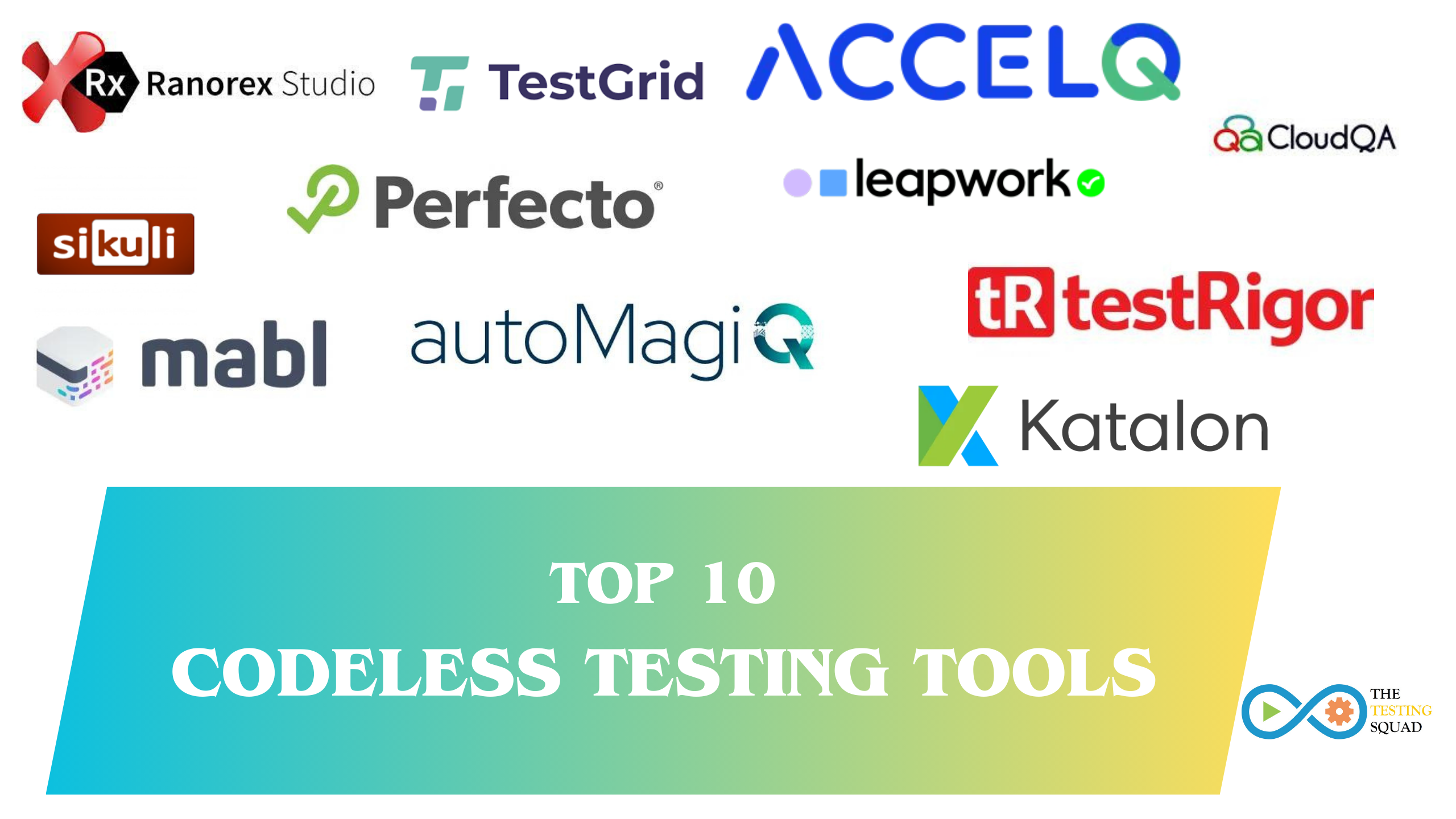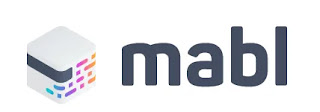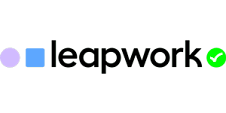Testing software used to be a complex and time-consuming task, often requiring coding expertise. But things have changed with the emergence of codeless testing tools. These tools are all about making the testing process more accessible, efficient, and user-friendly.
Now we live in a world where anyone, regardless of their coding background, can design and run tests with ease. In this article, I’ll share my views on the top 10 codeless testing tools that are simplifying the quality assurance process and making testing more approachable for everyone.
Here goes the list:
Features:
- The Web Recorder Utility captures all actions within the application and converts them into executable code on the back end.
- Identifies changes in the object and generates tests automatically.
- Integrations of Git, Jenkins, qTest, Jira, CircleCI, and other tools within the CI/CD pipeline and ALM system.
- Offers automated REST and GraphQL API testing
Rating: ⭐⭐⭐⭐
Features:
- Offers insights into test execution – Has built-in reporting capability and can be sharing.
- AutoHealing – Identifies changes between the builds, modifies the test case based on locator IDs and brings it to user’s notice after test run.
- Covers API, mobile devices, and web browsers.
- Offers workspace for data correction and affected functional flow determination.
- Allows the creation of workflows without coding through NLP.
- Robotic Orchestration - Simplified diagnostics and corrections with automated Level-0 troubleshooting.
Rating: ⭐⭐⭐
ACCELQ: ACCELQ revolutionizes test automation with its innovative utilization of artificial intelligence (AI) across diverse application platforms such as web, desktop, mobile apps, and mainframes. Seamlessly integrating into DevOps and QA ecosystems, it provides a holistic view of the software development lifecycle.
Renowned for its user-friendly interface, ACCELQ offers a myriad of features including customizable alignment, natural language programming, and an intuitive element explorer.
Notably, in 2020, Forrester recognized ACCELQ as the leader in "continuous functional test automation" suites, further solidifying its position in the industry.
Features:
- Cloud-based test automation featuring AI-driven, no-code capabilities.
- Swift test automation development with minimal maintenance requirements.
- Empowerment of continuous testing throughout the Software Development Life Cycle (SDLC).
- Extensive library of built-in actions for comprehensive test coverage.
- Seamless integration with leading tools and platforms.
- Comprehensive cross-device and cross-browser testing capabilities.
Rating: ⭐⭐⭐⭐
Features:
- Integrate data by leveraging AWS services such as EC2, ECS, Lambda, S3, DynamoDB, and additional resources.
- Transition to a microservices framework to provide immediate support for the most recent mobile and web operating systems.
- Preserves a comprehensive record of test logs for reference and analysis purposes.
- Offers actionable insights based on the tests run
- Allows granular control to create tests and test parameters.
Rating: ⭐⭐⭐⭐
Features:
- Dashboards and reports for actionable insights
- Parameterized JavaScript snippets
- Load external data to your functional tests
- Tools like Jenkins, Slack, CircleCI, JIRA, Bamboo, allow bug management
- Easily expand the testing nodes in the cloud as required, featuring actual browser installations on virtual machines.
Rating: ⭐⭐⭐
Features:
- Offers browser and mobile devices cloud for scalability.
- AI AI-powered automation that reduces testing time.
- Known for its cost-effectiveness
- Strong test data management with enhanced assertion capabilities.
Rating: ⭐⭐⭐
Features:
- Generative AI-based test creation
- Self-healing allows low test maintenance
- Supports audio and video testing
- Integrates easily with CI/CD, issue management and test management tools
Rating: ⭐⭐⭐
Features:
- Capacity of maintaining 1000 tests
- Can record and monitor within 5 minutes
- Allows integration with tools for ALM, CI/CD, communication, version control etc
- Plenty of alerting options
Rating: ⭐⭐⭐
Features:
- Offers built-in BrowserStack and Sauce Labs integrations
- No need to modify the automation flows when the system being tested undergoes changes.
- DevOps initiates schedules by invoking the REST API through PowerShell scripts.
- Native plugins are available for Azure DevOps Server/TFS, Jenkins, TeamCity, and Bamboo.
Rating: ⭐⭐⭐⭐
Features:
- Integrates Selenium Webdriver, allowing fixing of pain points on Selenium
- Supports VB.NET and C#
- Integrates with Bamboo, Jira, Azure DevOps, Jenkins, TeamCity
- Spy engine monitors descriptions of every UI component displayed.
Rating: ⭐⭐⭐
Features:
- Offers Selenium WebDriver and Sikuli-script.jar which automates flash games without any code
- Supports Linux, Windows, Mac
- No browser recorder for web automation
- Capture images at the pixel level for the purpose of User Interface validation.
Rating: ⭐⭐⭐
So, this was my take on the top codeless tools that are dominating the market right now. These tools are a great help to testers because they can reduce workloads and the time saved can be used for focusing on other tasks of the SDLC. Also, the reliability and accuracy of these codeless testing tools are major advantages. Every organization should invest in one of these tools if they wish to optimize their resources and speed up their testing while maintaining the quality of their software.











.jpg)

Post a Comment